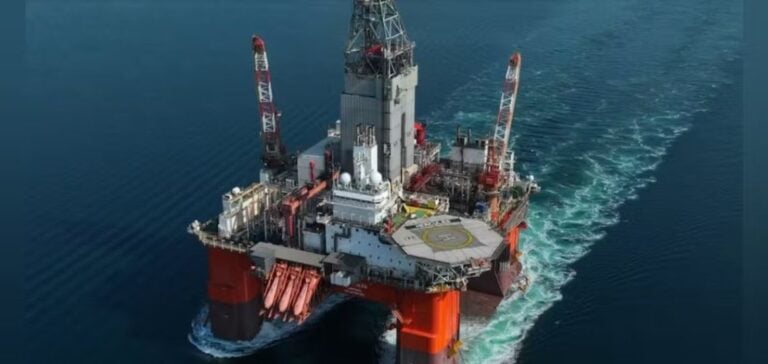ExxonMobil has decided to withdraw from negotiations to acquire a 40% stake in the Mopane offshore oil discovery in Namibia, currently held by Galp Energia.
This field, located under the PEL 83 exploration license, is estimated to contain at least 10 billion barrels of oil and gas equivalent, with a potential valuation of over $10 billion.
ExxonMobil’s withdrawal comes at a time when other oil companies are continuing to explore the possibility of acquiring this strategic stake.
Galp is proposing not only to sell its stake, but also to assign the role of operator to the purchaser, thus opening the way for companies wishing to strengthen their position in Namibia’s emerging energy market.
Corporate interest in the Mopane block
ExxonMobil’s withdrawal has not slowed interest in the Mopane block.
More than a dozen oil companies, including Shell and Petrobras, remain engaged in discussions with Galp Energia for a possible acquisition.
This block, with its estimated reserves, represents a major opportunity for companies looking to strengthen their portfolio of exploration and production assets in Africa.
Discussions continue against a backdrop of growing interest in the Namibian oil market, following a series of promising discoveries.
A region with growing energy potential
Namibia is becoming a new frontier for offshore oil exploration.
Recent discoveries by Shell and TotalEnergies have highlighted the region’s significant energy potential, prompting other international players to consider investment in Namibia’s oil blocks.
The Mopane field could play a pivotal role in transforming Namibia into a major oil producer.
By putting part of its assets up for sale, Galp Energia appears to be opting for a strategy of refocusing its investments, while offering interested companies a unique opportunity to operate in this booming geographical area.
Implications for corporate strategies
For the companies still in the running, such as Shell and Petrobras, acquiring a stake in Mopane represents not only a chance to capitalize on a major discovery, but also to strengthen their presence in southern Africa.
Namibia, although not yet a major oil and gas producer, could be transformed by these investments.
The development of these offshore resources could have long-term implications for local energy policy and the attraction of foreign capital.
However, the companies involved in these discussions will have to consider geopolitical aspects and local regulations.
The sale of Galp’s interest in the Mopane field, if successful, will mark an important milestone in the evolution of the oil industry in Namibia, and could influence the strategies of other players in the sector in their search for promising new reserves.





















